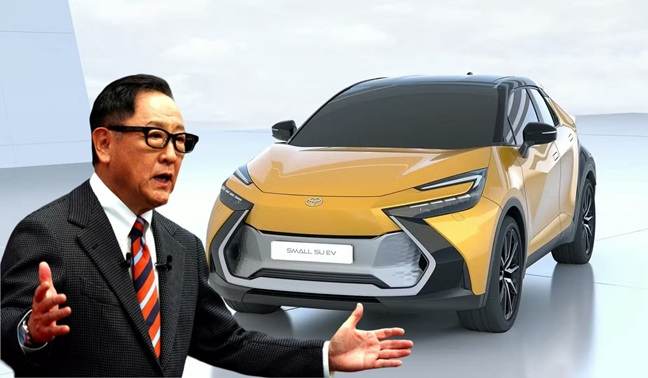Why Toyota Isn’t Going All-In on EVs—and Why That Might Be a Smart Move
While electric vehicles (EVs) are stealing the spotlight across headlines and political discussions, Toyota—the world’s top-selling automaker—is taking a very different approach. Instead of diving headfirst into a fully electric future, Toyota is sticking to what it knows best: hybrids. And according to Chairman Akio Toyoda, there’s a good reason for it. Toyota’s unique strategy, what sets it apart, and why it might actually be a smarter path to reducing emissions than you think.

In a recent interview with Automotive News, Akio Toyoda explained why Toyota isn’t rushing to flood the market with electric vehicles like many of its competitors. His message was clear: “The enemy is carbon.” In other words, it’s not just about switching to electric power—it’s about reducing overall carbon dioxide emissions in the fastest, most effective way possible.
According to Toyoda, the push toward EVs often overlooks important context—like how electricity is generated in different countries. He explained that if Toyota had produced 9 million battery-electric vehicles (BEVs) in Japan instead of hybrids, it might have actually led to more carbon emissions, not less. Why? Because Japan still relies heavily on coal and natural gas power plants.
Hybrids Still Pack a Punch
Toyota has sold over 27 million hybrid vehicles globally. That’s a massive number—and Toyoda claims that the carbon reduction impact of these hybrids is equivalent to putting 9 million EVs on the road. The logic is this: hybrids are more fuel-efficient than traditional gas cars, and they don’t depend on external charging infrastructure, which can be powered by dirty energy in some regions.
Since launching the original Prius in 1997, Toyota has made hybrids a core part of its lineup. Today, nearly every Toyota model offers a hybrid variant. In markets like North America and Europe, self-charging hybrids are especially popular for their convenience, affordability, and low emissions—without the hassle of finding a charger or worrying about range.
While EVs are definitely growing in popularity, millions of drivers still aren’t convinced. Whether it’s due to price, range anxiety, or charging infrastructure, Toyota sees this as a gap it can fill—right now—with proven hybrid tech.
A Multi-Pathway Approach
Toyota isn’t against EVs. In fact, it’s building them—just more slowly and strategically than competitors. But Toyoda believes diversity in technology is the real key to sustainable mobility. That means investing not only in battery EVs, but also in:
- Plug-in hybrids
- Hydrogen fuel cell vehicles
- Synthetic fuel-powered combustion engines
Rather than gamble on one solution, Toyota is hedging its bets across multiple technologies, allowing different regions and consumers to choose what works best for them.
In Toyoda’s own words:
“We should look at all options and work in all directions… What we’re fighting against is carbon dioxide.”
Toyota’s cautious EV rollout has sparked criticism. Many believe the company is falling behind in the global electric race. But take a closer look, and Toyota’s methodical strategy seems more like pragmatism than hesitation.
For example, in China, Toyota has expanded its bZ series of EVs. And in other markets, it’s preparing to scale its EV offerings as demand and infrastructure grow. But rather than rush headlong into EVs without a solid plan, Toyota is laying a sustainable, long-term foundation.
Toyoda’s strategy isn’t just about environmental impact—it’s also about economic stability. He’s warned that a sudden shift to an EV-only future could threaten up to 5.5 million jobs in Japan alone. That includes not only auto manufacturing, but also the vast supply chains and service networks that support gas and hybrid vehicles. So, while EV advocates are pushing for speed, Toyota is focused on balance—ensuring that progress doesn’t come at the cost of livelihoods or overburden already fragile power grids.
While some automakers chase headlines with aggressive EV targets, Toyota is sticking to its multi-energy playbook. With decades of experience in hybrid technology, a growing EV lineup, and investments in future fuels like hydrogen, Toyota is crafting a diversified, realistic path to carbon neutrality. Whether this strategy will pay off in the long term remains to be seen—but one thing’s for sure: Toyota is not ignoring the electric future. It’s just building it on its own terms.
Source- Carscoop
Related Post
